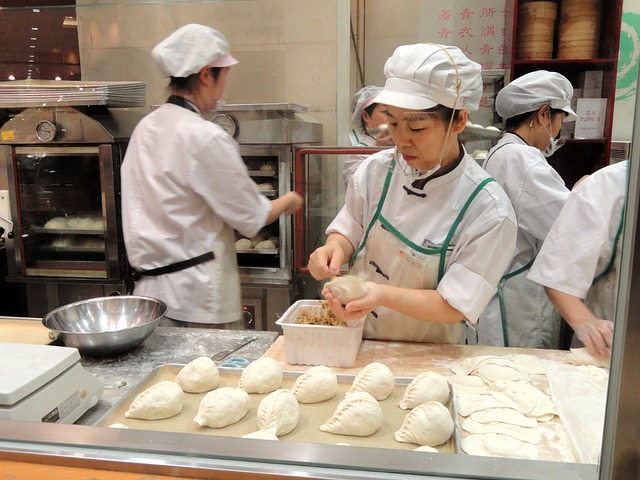Korean education system.
Constant practice and above all discipline have been the main values that have characterized the South Korean educational system through all these years. This educational philosophy applied from lower levels has made it possible to forge people who are sufficiently prepared to boost the economy of the entire country and make it one of the most developed nations in the world without being the same creditor of a significant territorial extension and with very few natural resources, making it clear ones again that the human being is the most important natural resource in any society.
In this article I will try to explain in a simple way the South Korean educational process from the vision and experience of a normal citizen. For this, I will take children between the ages of 12 and 16 as a reference, although the situations that will be explained later affect young people of older ages in the same way.
Technology in the life of Korean families.
As I have already explained in this article, family education is a fundamental part of the life of any human being. In South Korea, many parents forget all this and make excessive use of electronic devices such as cell phones, tablets or other types of devices in order to entertain their children and avoid interacting with them. All product of the stress that their lives regularly present as a result of work, among other situations. Such conduct of parents towards their children creates negative behavior patterns from childhood. I do not want to go deeply on this particular topic because many of you are convincing proof of this approach.
South Korean Educational System.
Throughout the national territory there are more than 20 thousand schools including kindergartens, elementary and secondary schools. There are also approximately 223 universities divided into 43 public and 180 private, of which 7 are well-known worldwide for only accepting female students. Really curious fact I have been interesting at least for me.
On the other hand, the educational infrastructure of this country is absolutely spectacular where all schools guarantee first-line food, with a varied gastronomic offer, classrooms equipped with air conditioning and heating due to the geographical situation of the country which presents climatic conditions very particular where the summer is quite hot and the winter is really cold, sometimes reaching values above -20 degrees C. It is also worth mentioning the free internet access in these facilities and the optimal conditions of its sports and scientific centers.
Despite South Korea being one of the most developed countries in the world, it should be noted that very few people speak English. An interest that has increased through all these years with the expansion of the cultural movement led by K-pop as well as the thousands of Koreans who leave the country every year.
It is crazy to think that such a developed country continues to apply a study policy at such extreme levels. The times of wars, underdevelopment and military occupation have ended and subjecting children to such long days of forced study in my opinion is a serious mistake. I mention the term of forced study because no child wants to continue studying after finishing the regular one-day lesson, which can vary between 6 or 8 hours depending on the type of school he attends. This pressure to which Korean children are subjected from such an early age is due, in most cases, to the enormous existing student competition and the need to raise or maintain family social status by making them give up such a beautiful stage of life like childhood.
The organizations in charge of the Finnish student system warn that the homework are not necessary since the children need time to be what they are, that is, children. A country where middle school students also have one of the best academic rates in the world and only study four hours a day without doing homework, which is more than enough. Finnish families respect the lives of their children and give them their space.
According to scientific studies carried out by different institutions and by the empirical evidence provided by life itself, it has been proven that the human brain retains much more information in the morning hours but in short periods of time. Staying long hours studying does not guarantee correct learning. It is not about establishing a large volume of study, it is about carrying out small sessions of systematic education efficiently.
Perhaps many people do not understand my approach. I know firsthand what it means to place all hope of getting ahead as a family in one or several individuals in it. Trying for a member of our family to achieve something that we were not able to achieve for many is important and I understand that to a certain extent but:
The consequences in most cases occur in the long term once adolescence is reached. It is precisely at this stage where all these disorders flourish, becoming an obstacle in the social life of these individuals. The fear of making a mistake, family stress, the lack of social communication skills and isolation are some of the most common consequences for young people in this society where it is not enough to be a good student, one must be the best and it is precisely this, is the vision that parents want other people to have of their children.
It should be noted that not all Korean parents act in the same way, although a large percentage of them do, or at least during their children's childhood. Despite all this, Korean children are very educated, curious and respectful, something positive about this culture that we must copy and apply to ours however, the problems that Korean culture imposes on its citizens are reflected in the country's annual suicide rate, which is one of the highest in the world, and none of this is coincidental.
I have met very talented Koreans, many of whom have given up their family communities to live a life away from all this pressure that persecutes them in part because of the toxic and limiting culture that exists in this country. To achieve this, most of them travel outside of the country in order to meet, live and learn from other cultures. This is precisely the generation that will make significant changes here. A different generation with another mentality behold the importance of traveling and leaving our comfort zone. Traveling is an action that marks our lives forever.










Comments
Post a Comment